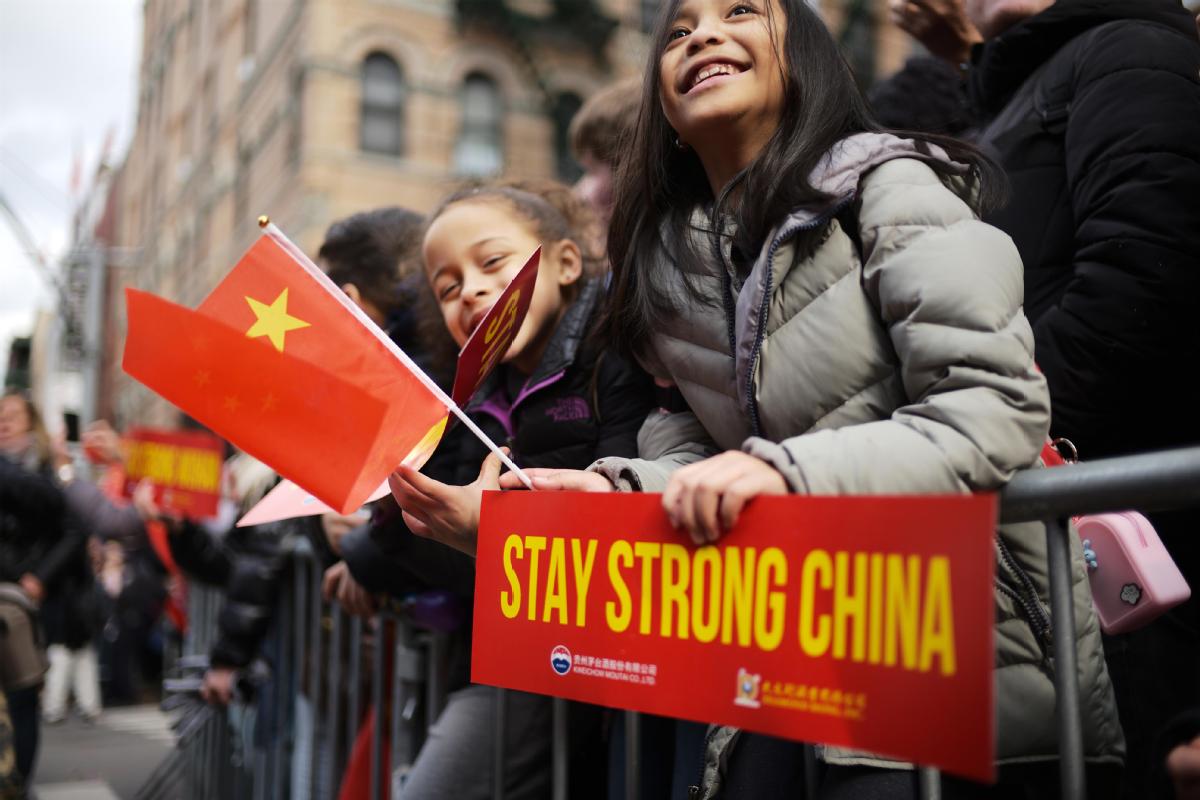Beijing hails US support in virus fight
Envoy in Washington looks forward to contributions as part of global mission






China welcomes the prospect of US experts being part of an international mission to combat the novel coronavirus, Chinese Ambassador to the US Cui Tiankai said on Sunday, as the World Health Organization announced an advance team has left for China.
"We certainly welcome American experts to join the group the WHO is assembling, and I'm sure they will be going to China very soon," Cui on the Face the Nation program on CBS News, when he was asked why Beijing seemed to "ignore those offers "of the US to send experts to help out.
As to the formation of the expert team, China is coordinating with the WHO because a lot of work is being done under the auspices of the organization, Cui said. "American experts are on the list recommended by the WHO, which China certainly respects," he said.
There have been frequent and regular contacts between the US Centers for Disease Control, or CDC, and its Chinese counterpart, and some US experts have come to China on an individual basis, Cui said.
The WHO team, described as being part of an international expert mission, left on Sunday for China, the agency's director-general Tedros Adhanom Ghebreyesus said. The team arrived in Beijing on Monday.
As of Sunday, the death toll from the outbreak reached 908 on the Chinese mainland, where there were 3,062 new confirmed infections on Sunday, bringing the total to 40,171, China's National Health Commission said on Monday.
The Chinese ambassador also categorically refuted some claims about the origins of the coronavirus, calling any theories it is linked to biological weapons research "absolutely crazy".
"I think it's true that a lot is still unknown and our scientists-Chinese scientists, American scientists, scientists of other countries-are doing their best to learn more about the virus," Cui said.
"But it's very harmful, it's very dangerous to stir up suspicion, rumors and spread them among the people. For one thing, this will create panic. Another thing, (is) that it will fan up racial discrimination, xenophobia, all these things, that will really harm our joint efforts to combat the virus," he said.
The US said on Friday it stands ready to spend up to $100 million to assist China and other countries affected by the novel coronavirus epidemic.
Living amid the outbreak
Meanwhile, the virus' fallout has disrupted the lives of some US citizens who travel between the US and China, such as Megan Monroe, an English teacher in Wuhan in Central China's Hubei province. But she decided to stay in the outbreak's epicenter even though she had a chance to evacuate with other US people.
Monroe comes from California. She decided to stay in the city of 11 million despite the US government having sent planes there to repatriate its citizens.
Having been in Wuhan for two months teaching children to perform and speak English in a company called Pro-Stage, Monroe wants to "continue that aspiration as much as I can even with the quarantine going on", she said.
Monroe is keeping busy working on her online teaching material and producing English-instruction clips, as well as an online curriculum for her pupils. The country's schools are on an extended winter break and China's Ministry of Education has asked schools at all levels to postpone the start of the 2020 spring semester until further notice. Also, after-school training institutions-of which Monroe's is one-also had to cancel their classroom instruction.
For Monroe, concerns over traveling and quarantine are not her only reasons to stay in China.
"I also want to understand the Chinese culture better, and there's no better way to get to know the people and their values than to see how they respond to a crisis like the coronavirus," she said.
"I know that I have my whole life ahead of me, and I'm not going to let this virus get in the way of that."
According to the US CDC, after the first flight carried around 210 US citizens from Hubei to the March Air Reserve Base in California on Jan 29, four more planes have brought hundreds of people to four Air Force bases in California, Texas and Nebraska.
All passengers face a 14-day mandatory quarantine period, during which they are housed at the bases and closely monitored by medical staff.
Mario Cavolo, a US author and speaker now lives in Shenyang in Northeast China's Liaoning province, wrote in a recent LinkedIn post: "The world should be applauding China's unprecedented, broad, aggressive response. I am on the ground here in China watching with my own eyes and it is quite incredible by any measure, not to mention an enormous economic sacrifice."
Cavolo criticized what he called "hateful, vicious attacks on the Chinese government" and restrictive measures taken by other countries, including the US, that are "isolating" China.
Comparing the coronavirus outbreak with the 2009 H1N1 outbreak-a pandemic that resulted in hundreds of thousands of deaths globally and more than 12,000 deaths in the US, as the CDC estimated, Cavolo noted that no country issued travel bans to and from the US, and the Americans did not get "xenophobically attacked and targeted by anti-American sentiments like the Chinese are experiencing now".
Foreigners in China are "most likely safer and more peaceful and more stable by simply staying put than by leaving right now", he wrote, adding that in China, "almost everyone is staying home and dutifully isolating themselves with awareness".




























